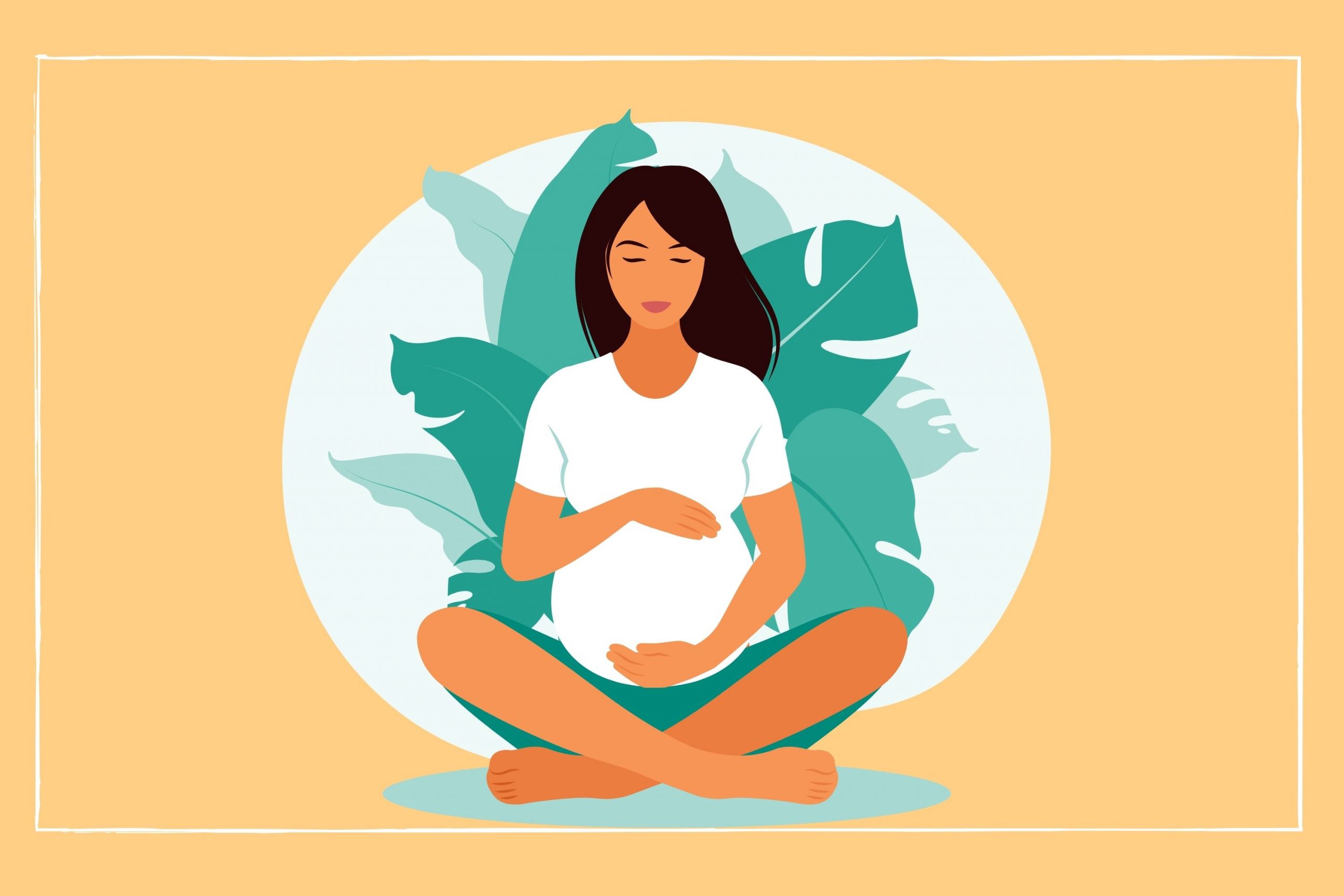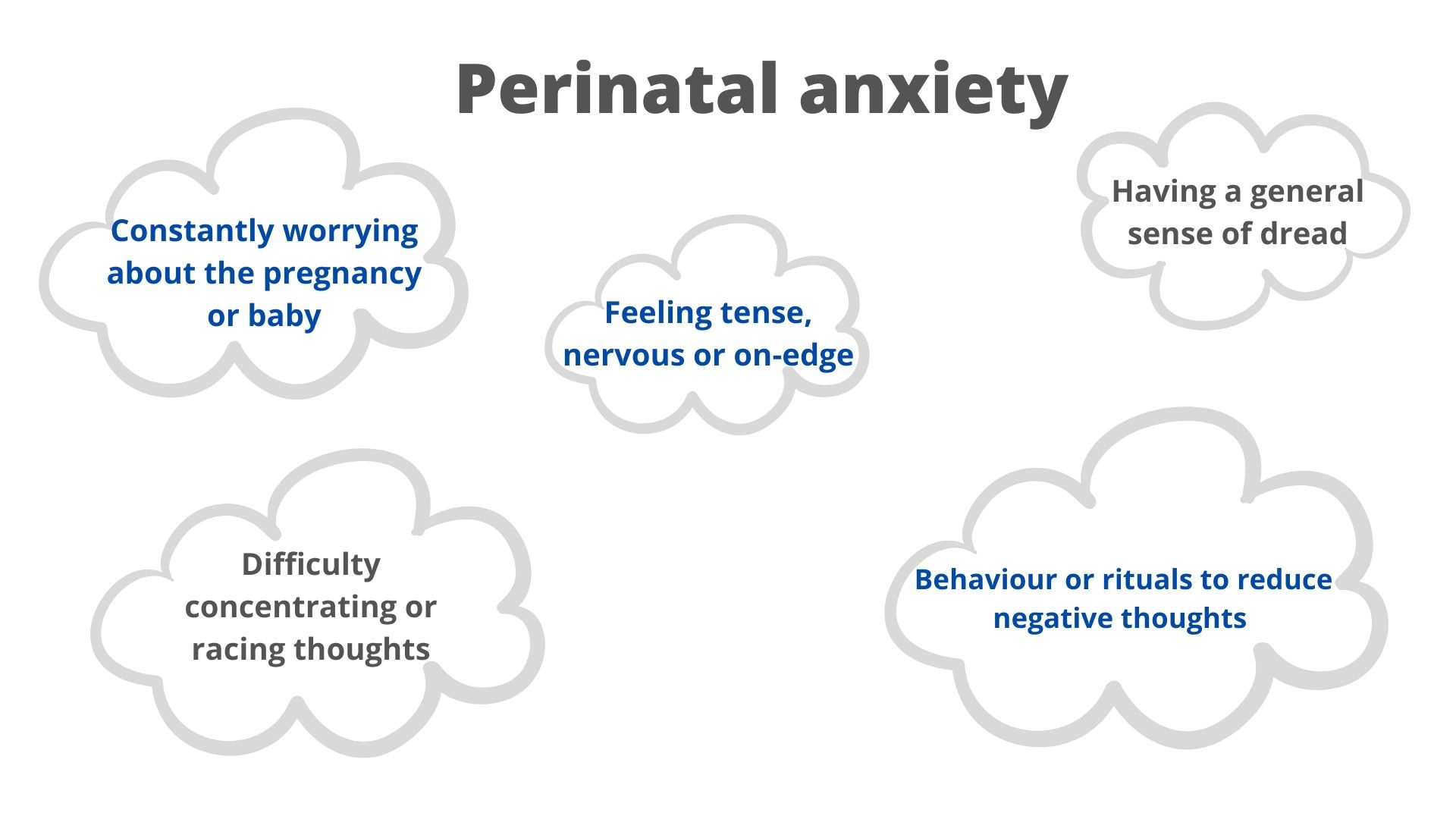Perinatal mental health: what is it and where to get help
Perinatal mental health is so important for new mums, here our expert shares all you need to know

Perinatal mental health can also be known as antenatal and postnatal. Though, a perinatal mental health problem is one that's experienced any time from becoming pregnant up to a year after you give birth.
The perinatal period is a time of profound neurological change and is part of matrescence the process of becoming a mother. You may have all heard of prenatal depression or postnatal depression and some of of the campaigns to help women feel less like this such as the Mum Ribbon Movement. Whether you were plus size and pregnant or not, when you become a new mum, there's not only the worry of whether you'll find any mum friends, but also a whole new dictionary of medical words thrown at you from every direction. Words that you may not understand or have only heard in passing. And, perinatal may be one of those words. Here Dr Carla Runchman, Clinical Psychologist and author of The Mama Diary, a journal focusing on new mum's mental health and wellbeing, breaks it down for us.
"Antenatal or prenatal means specifically before birth. Postnatal or postpartum means specifically after birth. And, ‘peri’ is the Latin for “around”, and ‘natal’ is the Latin for “birth”. So perinatal mental health refers to a woman’s mental health during pregnancy and the first year after birth. Some perinatal mental health problems can be pregnancy-specific such as tokophobia, which is a fear of childbirth, or post-traumatic stress disorder following childbirth. Or it could be more generalised like anxiety and depression.
According to study from UCL, around one in ten new mums experience postnatal depression, and there is early evidence that an entire generation of ‘lockdown mums’ have been even more likely to experience perinatal mental health problems. One study found that almost half (47.5%) of mothers with young babies met the threshold for postnatal depression during the first COVID-19 lockdown in 2020, and with the many knock-on impacts of the pandemic, it is more important than ever that we recognise the importance of perinatal mental health.
What is perinatal mental health?
Perinatal mental health is your mental and emotional wellbeing from the time of pregnancy up to a year after giving birth. Perinatal mental health problems can include a mental illness that existed before pregnancy, as well as any that develop for the first time in the perinatal period. The most common reported by mums are;
- Perinatal depression
- Postpartum psychosis
- Perinatal anxiety
- Postpartum PTSD
- Perinatal OCD
As mentioned above you may also recognise the terms antenatal or pre-natal meaning 'before birth', and postnatal or postpartum meaning 'after birth'. Developing depression, anxiety or other mental health problems during before or after birth falls under the umbrella of ‘perinatal mental health’.
Of course, occasionally feeling anxious, tearful, or tired as a pregnant or new mum is absolutely normal and doesn’t necessarily mean anything is wrong per se. Becoming a mum for the first time is an enormous transition and can present challenges to your emotional wellbeing. Everything is off-kilter, your body and mind just grew a human and now you’re getting to know each other, usually on very little sleep.
Parenting advice, hot topics, best buys and family finance tips delivered straight to your inbox.
You are suddenly adjusting to a new identity as ‘mum’. To your new routine (or sometimes lack of one), as well as navigating your existing relationships after having a baby. Your body is recovering, and you are psychologically and neurologically adjusting to becoming a parent. And learning to recognise and respond to your baby’s needs. Potentially alongside a heavy dose of sleep deprivation, so it’s no wonder that this perinatal period can be a hugely vulnerable time for your mental health.
What is perinatal depression?
Perinatal depression is more persistent than the 'baby blues', it could look like you struggling to muster the motivation to get out of bed, to get washed and dressed. Or to go anywhere outside your home. You may feel numb, hopeless, a lack of joy in your new baby, and little interest in doing the things you normally enjoy. You may also struggle to sleep, even when you have the opportunity.
Perinatal depression can happen any time from becoming pregnant to around one year after giving birth. It may be recognised as antenatal depression. It can be very obvious to some; however, it can be invisible to others. A seemingly happy, ‘normal’ version of you on the surface with the darkness hidden inside. The term ‘baby blues’, has been anecdotally shared by new mums for years as feeling a bit overwhelmed in the days after having a baby. And this feeling, as scary as it is, is normal. A persistent low mood is not. The baby blues only lasts up to a few days after giving birth.
https://youtu.be/bOtXcLcDTLk
It's understandable that this may be confusing as most people tend to only recognise postnatal depression. And, if you experience depression while you are pregnant or after giving birth, this could be recognised and referred to as one of three terms;
- Antenatal depression – during pregnancy
- Postnatal depression (PND) – during roughly the first year after giving birth
- Perinatal depression – any time from becoming pregnant to around one year after giving birth.
What is perinatal anxiety?
Perinatal anxiety is varied and can manifest in different ways. It's characterised as a gut-wrenching, heart pounding feeling of dread that something is wrong. This is often felt together with physical symptoms, such as sweating, shaking or dizziness. It can look like overwhelming urges to clean repeatedly or perform other ritualistic behaviours. Or frequent, upsetting, and violent thoughts or images of your baby being injured. One mum, Louise tells me how she would imagine a dog grabbing her baby from the buggy when walking in the park. According to research around 1 in 5 women may experience this during their pregnancy or through the first year of birth. Symptoms of perinatal anxiety could include;
- Constantly worrying about the pregnancy or baby
- Feeling tense, nervous or on-edge
- Having a general sense of dread
- Difficulty concentrating or racing thoughts
- Behaviour or rituals to reduce negative thoughts (such as repeatedly checking the baby’s breathing through the night)
The good news is that this is treatable once recognised. However, perinatal anxiety is a relatively new concept. This means it’s still misunderstood by the general public and some healthcare professions. Because of this, some symptoms may go unrecognised. A recent review found that therapy is likely to be the most effective and safe treatment for pregnant and postpartum women. Initial research also suggests mindfulness techniques, like breathing exercises, yoga, and meditation can help relieve symptoms.

Perinatal mental health problems: Where can I get help?
Reach out to your GP, midwife or health visitor; keep their numbers saved in your phone. Try NHS talking therapies and the Best Beginnings app ‘Baby Buddy’. And, for mindfulness techniques in the perinatal period try ‘Mindful Mamma’ by Sophie Fletcher, and some mums find getting their feelings out and on to paper helps their mental health in the first year.
Despite that well-meaning 'cherish every moment' advice new mums seem to get on a regular basis, you really don’t have to. Especially during the perinatal period (that first year after birth). This time can be tough with plenty of challenges thrown your way.
You can also try;
Association for Post Natal Illness - Provides support for women experiencing postnatal depression. Call on 020 7386 0868 PANDAS Foundation - Provides information and support for anyone experiencing a mental health problem during or after pregnancy. Call on 0843 28 98 401 Family Action - Supports families of any kind, including with mental health problems. Call on 0808 802 6666
There are many complex factors that influence our mental health. One size does not fit all, and you are the expert on you – if you don’t feel ‘right’, tell someone. We know it's hard but struggling in silence is harder - there are plenty of treatments and therapies that can help.
The most important thing to remember is to be kind to yourself. We, and our supporting family and friends, may have many expectations for parenthood, but none of us can meet all our expectations all the time. Be kind to yourself, try to treat and speak to yourself as you a friend. Whatever happens, it’s important to realise that you are not alone and that help is available.
It's also worth noting that paternal postnatal depression does exist. This is where the father of the baby could also be going through mental health problems in that first year of parenthood. One Swedish study reported that of 447 men interviewed, 27% of men had depressive symptoms above mild levels, yet fewer than 1 in 5 sought help.
While there is no official diagnosis of PND for men, according to Dr Andrew Mayers, a psychologist at Bournemouth University and an expert in perinatal mental health, "we do know that around 10% of fathers experience symptoms of what would be diagnosed as depression in the months after their child is born."
There’s support with charities such as Tommy’s which share advice and resources, and Dr Mayers information on fathers’ mental health is very useful. For more information read goodto.com's paternal postnatal depression article.
Video of the Week: